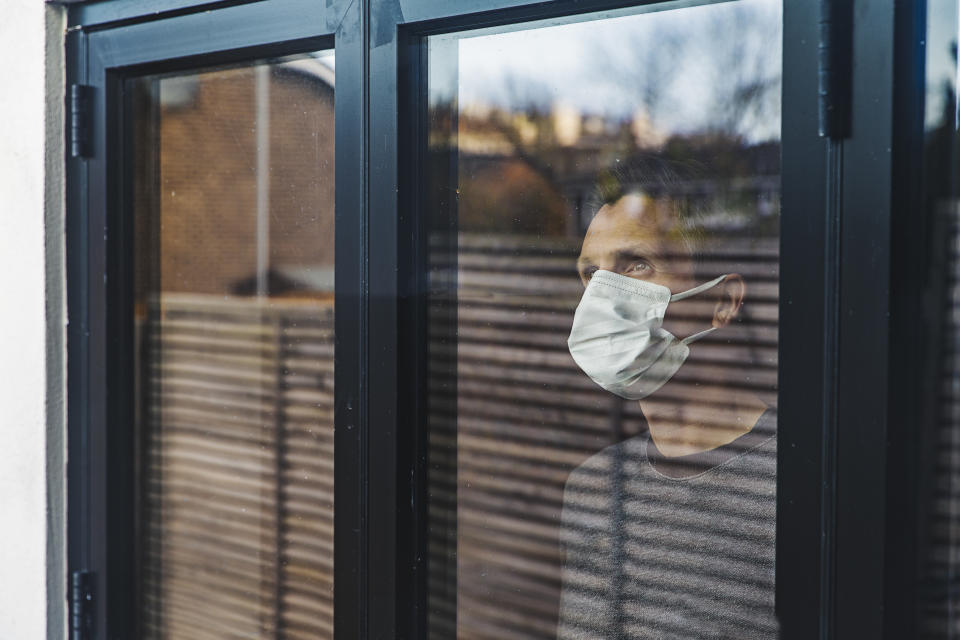Coronavirus: Why it's OK to feel unproductive and unmotivated during a pandemic

Now is the time to do the things we never had time to do – or so we are told. You can join the masses and bake banana bread, learn a language, write a book, hone your culinary skills, do an online course or make crafts, all without leaving your home.
Between the constant barrage of coronavirus updates, it has been difficult to ignore social media posts from people making the most of life under lockdown. One has launched the side hustle she has been thinking about for years. Another is learning French. Someone else is running 10km every day and making it look easy, and posting about it online.
People find different ways to cope during a crisis situation like the Coronavirus pandemic. For some, it’s a good excuse to be more productive. For others, it means finding a distraction from watching the bad news roll in. For a lot of people, though, life under lockdown means just doing what you do to have to get through the day – and there is nothing wrong with that.
Read more: How to look after your mental health during the coronavirus pandemic
“We are facing the fear of catching the virus, the felt responsibility of passing it on and the stringent rules that have been bestowed onto us. This gives a felt sense of a lack of control,” says Counselling Directory member Phillip Karahassan. “This emotional state can get passed onto other areas of life and therefore we feel unmotivated to do other things day-to-day – no matter how tedious they are.
“You could see this as a bad thing, but actually your ideals have changed. You need to be wary of your health and make new ways to relate to the world during these times.”
While some people are enjoying the opportunity to spend less time in the office, others are far too preoccupied with financial anxiety to ‘make the most’ of time at home. Within just a few weeks, people’s lives have been turned upside down. Businesses have been forced to close, leaving millions of people around the world facing redundancy, job insecurity and income loss as a result of the COVID-19.
In the UK, one in 20 people have lost a job because of coronavirus, according to a YouGov poll, while almost one in 10 have seen their hours reduced. According to recent ONS statistics, the UK economy is heading for a recession that may be one of the most severe since 1900.
Read more: Four ways you can reduce stress when working from home
For people with children, juggling work and childcare without being able to leave their homes leave very little ‘spare’ time to engage in self-development. It takes all their energy just to get the bare minimum of work done while home-schooling kids – particularly for single parents.
While some people are learning coding, others are too preoccupied with worry about vulnerable relatives or friends. Additionally, there are those who struggled with their mental health before coronavirus began to spread, who now find it a challenge to simply get out of bed in the morning. For them, self-care is little more than finding the energy to shower or brush their teeth, never mind spending time on self-development.
And as the days dissolve into each other, it is simply becoming harder to feel motivated to do anything besides work and going on a short walk each day. It’s normal to feel overwhelmed and lacking in creativity or drive.
Moreover, it is easy to punish yourself for getting less done than you usually would on a normal working day, but the current situation is far from normal. We are living in isolation from family and friends and prohibited from the activities we take for granted, like going for a coffee. Instead of feeling guilty for being unproductive, it’s important to recognise that we have different priorities and abilities now – because of factors outside of our control.
“The expectation of keeping calm and carrying on could actually get in the way of your overall sense of contentment and happiness, as well as yours or other’s physical health,” Karahassan says. “Not forgetting your mental health, as you will be met with constant barriers stopping you from being able to do the things you used to do before self-isolation.
“So then use this time to rest and reform your life, if it means resting and recuperating do so in the knowledge that you are working towards forming a new way of living during these unprecedented times.”

 Yahoo Finance
Yahoo Finance 
